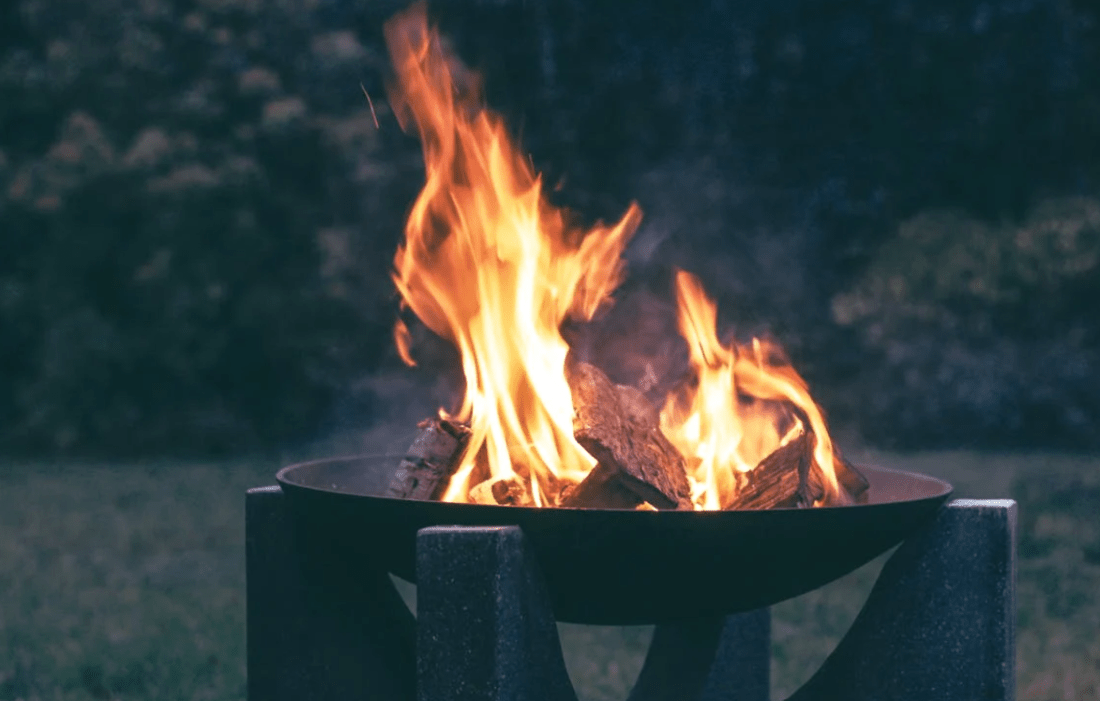Burgers are one of the most popular fast foods in the world, and more than 50 billion burgers are consumed yearly. Picture this: You are enjoying a sunny afternoon in Colorado with a grill sizzling and a burger calling your name. But as you are about to flip the burger, you hear a siren, and a fire truck pulls up to your door.

You have broken the law because grilling outdoors is banned in many parts of the state. Similarly, you can have custom fire pits in Denver fuelled by methane or natural gas, but not wood fires outdoors.
The U.S. is a diverse nation with a vast population and landscape. This diversity is best reflected in the patchwork of regulations that varies from state to state and even city to city. In this article, we will discuss the seemingly unusual bans across the U.S. and the fascinating yet logical reasons behind them.
Colorado’s Cluster of Bans
Fireworks Ban in Elbert County
Located in the plains of eastern Colorado, Colorado is taking fire prevention quite seriously with a statewide ban on fireworks. This ban exceeds state law by prohibiting all sorts of fireworks, including novelty items and sparklers. The ban makes sense, given that Colorado experiences around 6,000 wildfires yearly.
The rural landscape of Elbert County, characterized by the vast expanse of dry grass and limited fire service resources, makes it highly susceptible to wildfires. The ban has received support from those who prioritize safety, but some feel it infringes on personal freedom.
Outdoor Fire Ban in Denver
Denver is known for its arid climate and high-altitude geography, which make wildfires a constant threat in the region. A study reveals that 19% of all properties in Denver are risk-prone to wildfire over the next 30 years. According to Creative Living, residents require a permit from the Denver Department of Environmental Health and the Fire Prevention and Investigation Division to light an outdoor fire.
However, there’s a solution for those who want to enjoy a cozy night in the yard by the fire with family and friends. There are options, such as custom fire pits fueled by natural gas or propane. These custom fire pits are available in various designs to match your home’s aesthetics and can be ordered in concrete or steel.
Gas Grill Ban in Colorado
While there’s no statewide ban on gas grills in Colorado, some counties and municipalities have bans for apparent reasons. These bans occur during high-fire-risk seasons like drought conditions or Red Flag warnings. Residents are encouraged to use alternative methods like electric or charcoal grills, which are less likely to ignite accidental fires.
Twenty of the largest wildfires in the U.S. have occurred in Colorado in the last twenty years. Therefore, it’s unsurprising that the state has some of the strictest fire usage bans.
Other Notable Bans Across the U.S.
Several bans exist across the U.S., intended to balance community safety with individual freedom. Let’s examine some sensible bans prevalent in the States.
Plastic Bag Ban in California
According to the latest statistics, plastic waste generation worldwide is expected to increase to around 380 million metric tons by 2060. This is concerning data that has yet to be lost on the California administration. California has banned single-use plastics at most retail stores to combat plastic pollution and its impact on marine life.
Sidewalk Selling Ban in San Francisco
San Francisco is infamous for its high crime rate in the U.S. Statistics reveal that the city has one of the highest crime rates in America, with a crime rate of 64 per 1,000 residents. San Francisco is said to have a higher crime rate than 98.9% of the states in the U.S.
San Francisco officials have banned street vending to improve street conditions. According to the San Francisco Police Department, there has been a 30% decrease in reported robberies and assaults since the ban.
Noise Restrictions in Multiple States
Multiple cities and towns nationwide have noise ordinances to maintain quiet and peace in residential areas. These restrictions usually prohibit loud noise during certain hours, like early morning or late night. These restrictions are imposed to protect the residents’ quality of life, but they often lead to disputes and complaints about enforcement.
These are just the tip of the iceberg, and many bans are in place nationwide. The common denominator between these bans is the intention to balance community well-being and individual convenience.
From the outdoor fire ban in Colorado to the street vending ban in San Francisco, these restrictions prioritize the collective good of the community over personal liberties. These bans often reflect a dynamic legal landscape designed to adapt to society’s changing needs and priorities.



